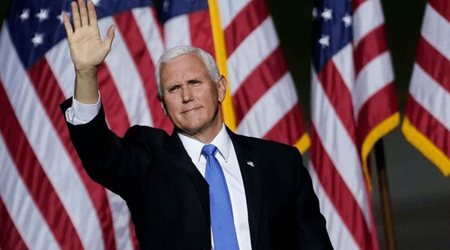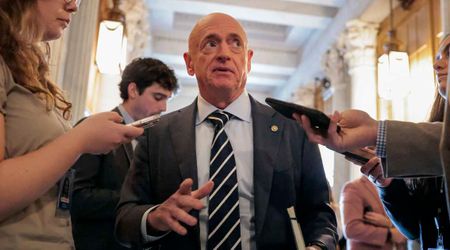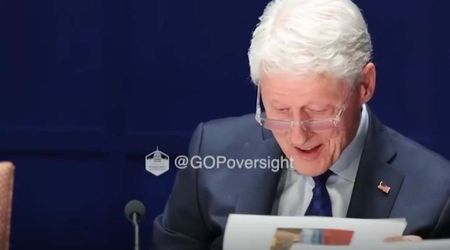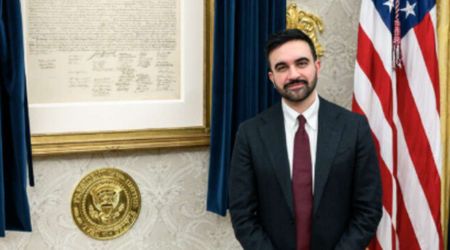Maine Secretary of State Shenna Bellows claims her home was 'swatted' following Trump ballot removal, Internet calls it 'dangerous'
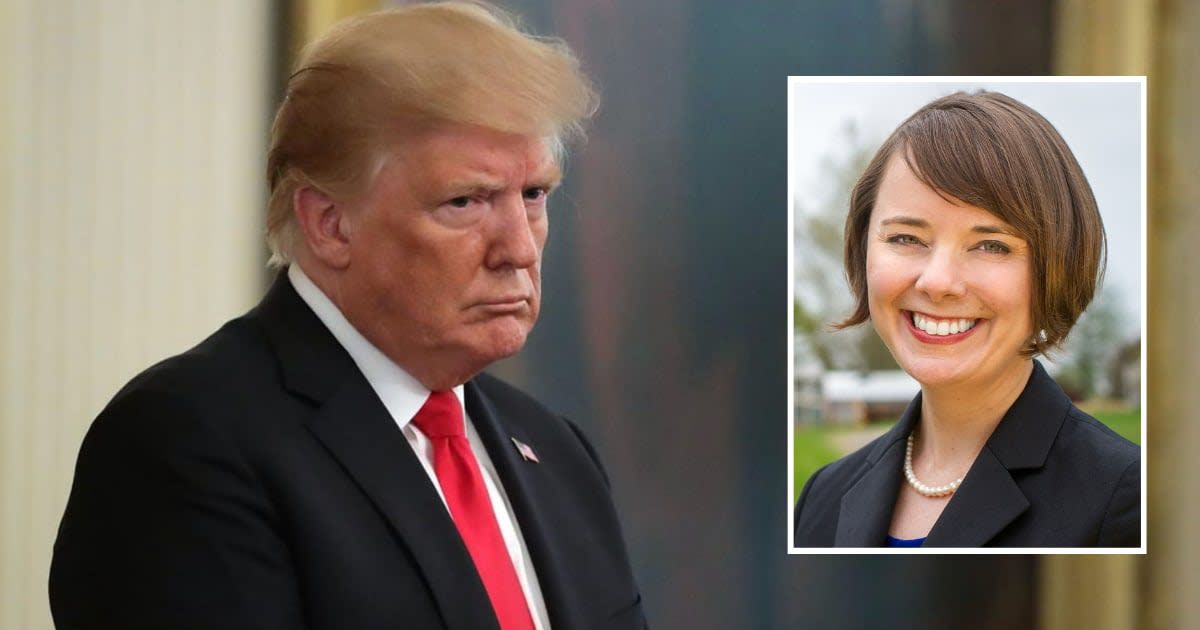
AUGUSTA, MAINE: A fraudulent emergency call to the police resulted in officers converging on the home of Maine Secretary of State Shenna Bellows on the night of December 29, marking a distressing escalation just a day after she invoked the Constitution's insurrection clause to remove former President Donald Trump from the state's presidential primary ballot.
Bellows became the latest elected official to fall victim to the dangerous practice of swatting, a disturbing hoax aimed at triggering an extensive law enforcement response, including SWAT teams.
The controversy unfolded on December 28 when Bellows, a Democrat, made the brazen decision to exclude Trump from Maine's presidential primary ballot.
Excluding Trump from the Primary Ballot
The move closely mirrored the December 19 decision by Colorado's Supreme Court. Bellows, invoking Section 3 of the 14th Amendment, justified her ruling based on Trump's alleged involvement in the US Capitol riot.
The fallout from this decision was swift, with Bellows revealing on Saturday, December 30, that her family had been threatened and her home subjected to a swatting incident. Despite the gravity of the situation, she assured the public that no one was harmed during the incident.
"We were not home yesterday when threats escalated, and our home address was posted online. It was a good thing because our home was swatted last night," she wrote, adding, "This behavior is unacceptable."
A deeper examination of visitor logs exposed Bellows' interactions with the Biden administration, raising questions about potential motivations behind the swatting incident.
Fox News reported that Bellows visited the White House twice in 2023, meeting President Joe Biden in March and engaging with Justin Vail, a special assistant to the president, in June.
Fun Fact: Maine's Secretary of State, Shenna Bellows (who just removed Trump from the ballot) had a great time visiting Joe Biden at the White House for their Women’s History Month Celebration. pic.twitter.com/ko3xyaQe4Z
— Tim Young (@TimRunsHisMouth) December 29, 2023
In a social media post following her March visit, Bellows shared a photo with Biden, captioning it, "Amazing to meet President Biden. Grateful for the birthday wishes today." The logs also revealed her June meeting with Vail.
The controversy further deepened as an op-ed from June 2021 resurfaced, showcasing Bellows' concerns about the state of democracy after the 2020 presidential election.
While admitting to serving as a presidential elector for Biden in 2020, she criticized the Electoral College, labeling it a "relic of white supremacy."
"Voting rights for our neighbors matter as much as our own, especially when the relic of white supremacy that is the Electoral College remains in place," she wrote. Bellows expressed a deep-seated fear for democracy, motivating her to run for the position of secretary of state.
Social media reactions
Bellows garnered support from individuals across the political spectrum on social media. Many condemned the act of swatting, highlighting its dangers and the strain it places on law enforcement resources.
"Shenna Bellows, the Maine Secretary of State, was swatted after she removed Trump from the ballot. Say what you will about her decision (it is wrong) but this shouldn’t be happening either," one posted on X (formerly Twitter).
"Wonder who would do such a thing? Just wrong," another wrote.
"Life in prison for all swatters," a comment read.
"So wrong. I am against doxxing on either side, for any reason. No personal home addresses. This isn't hard," someone else added.
"Regardless of politics, SWATing should be dealt with harshly. It’s dangerous and takes police resources away from where they are needed. Let heads roll!" another offered.
Shenna Bellows, the Maine Secretary of State, was swatted after she removed Trump from the ballot. Say what you will about her decision (it is wrong) but this shouldn’t be happening either. pic.twitter.com/3eR6U1i1s5
— Ian Miles Cheong (@stillgray) December 31, 2023
So wrong. I am against doxxing on either side, for any reason.
— Laurie (@laurieinri) December 31, 2023
No personal home addresses. This isn't hard.
Regardless of politics, SWATing should be dealt with harshly. It’s dangerous and takes police resources away from where they are needed. Let heads roll!
— Peter J Forcelli (@Forcelli_Author) December 31, 2023
Examining Bellows' background
Born on March 23, 1975, she is an American politician and serves as the executive director of the Holocaust and Human Rights Center of Maine. She previously served as the executive director of the American Civil Liberties Union (ACLU) of Maine.
In 2014, Bellows was the Democratic nominee for the United States Senate in Maine but was defeated by incumbent Republican Susan Collins. In 2016, she won the election to the Maine Senate, resigning in 2020 to become a candidate in the legislative election for secretary of state.
Earlier this week, Bellows made headlines by asserting her authority to remove Trump from the ballot under the Constitution's bar on insurrectionists holding office. Section 3 of the 14th Amendment specifically bars officials who have engaged in insurrection from holding office.
As debates over the application of the insurrection clause intensify, Bellows remains steadfast in her decision.
In a CNN interview, she addressed accusations from the Trump campaign, stating, "I am so mindful... that it is unprecedented. No secretary of state has ever deprived a presidential candidate of ballot access based on section 3 of the 14th Amendment. But no presidential candidate has ever engaged in insurrection and been disqualified under section 3 of the 14th amendment."
The legal battle surrounding Trump's removal from the ballot echoes the Colorado Supreme Court's decision, currently on hold until the US Supreme Court decides on the Civil War-era provision.
Bellows concluded the interview by stating, "The oath I swore to uphold the constitution comes first and foremost. The textual analysis of the constitution and the facts laid before me at the hearing that I was obligated to hold under Maine law brought me to this decision."


